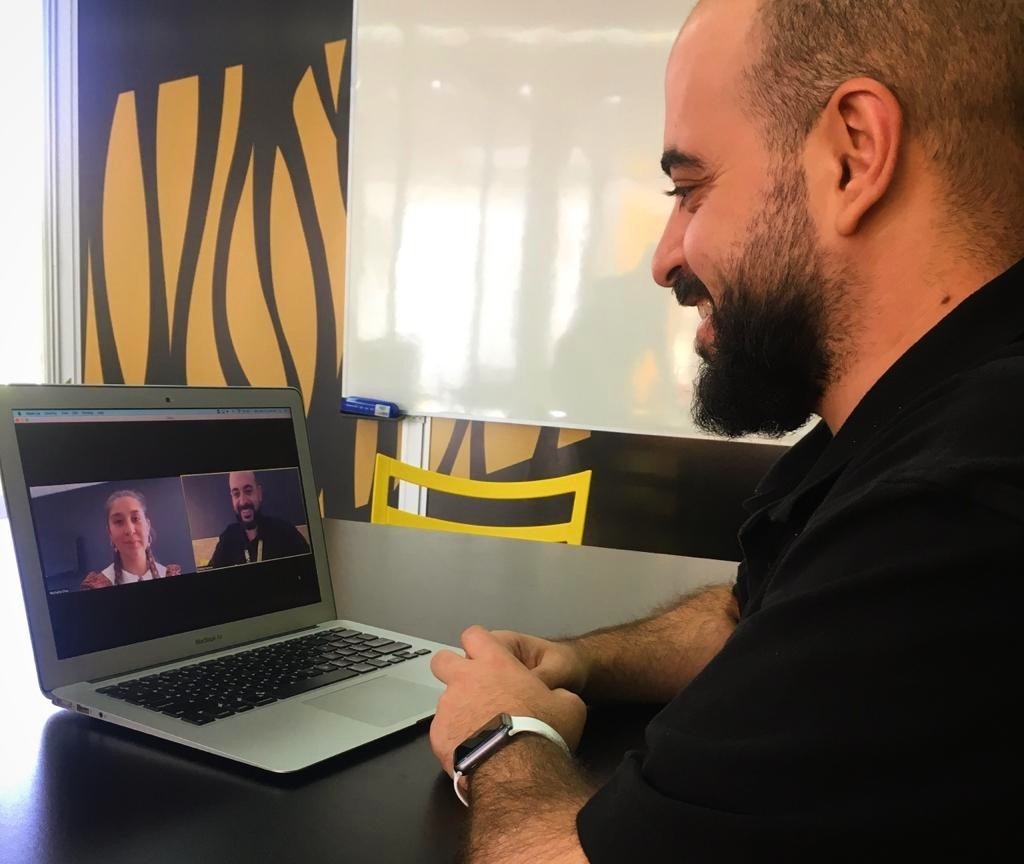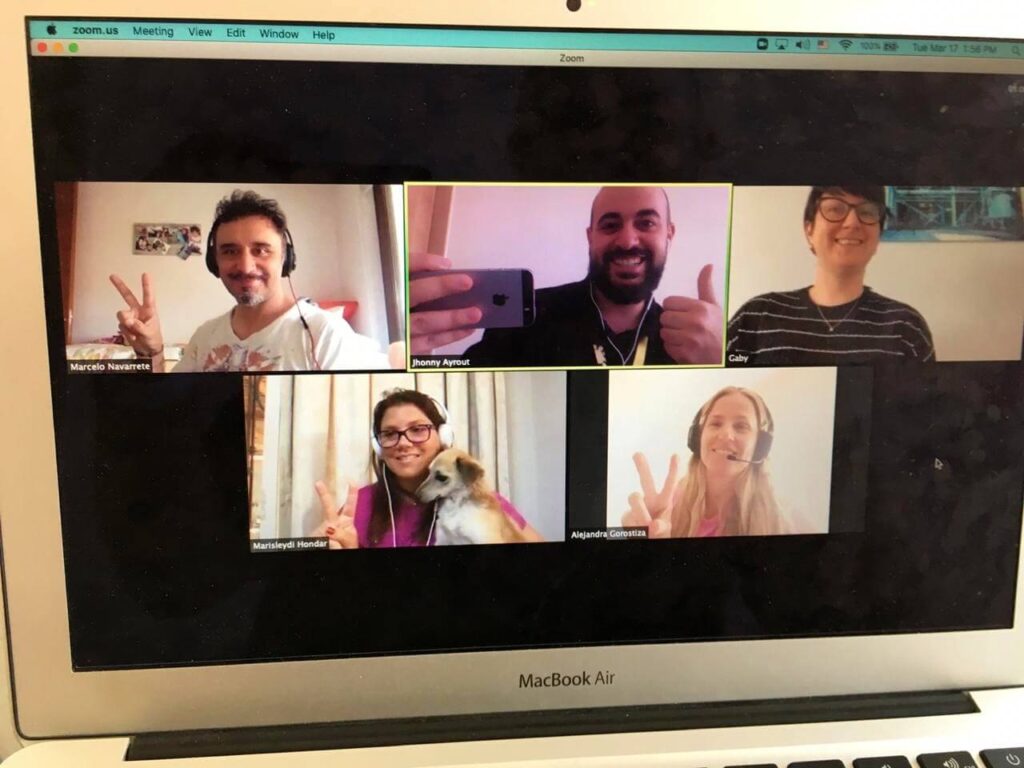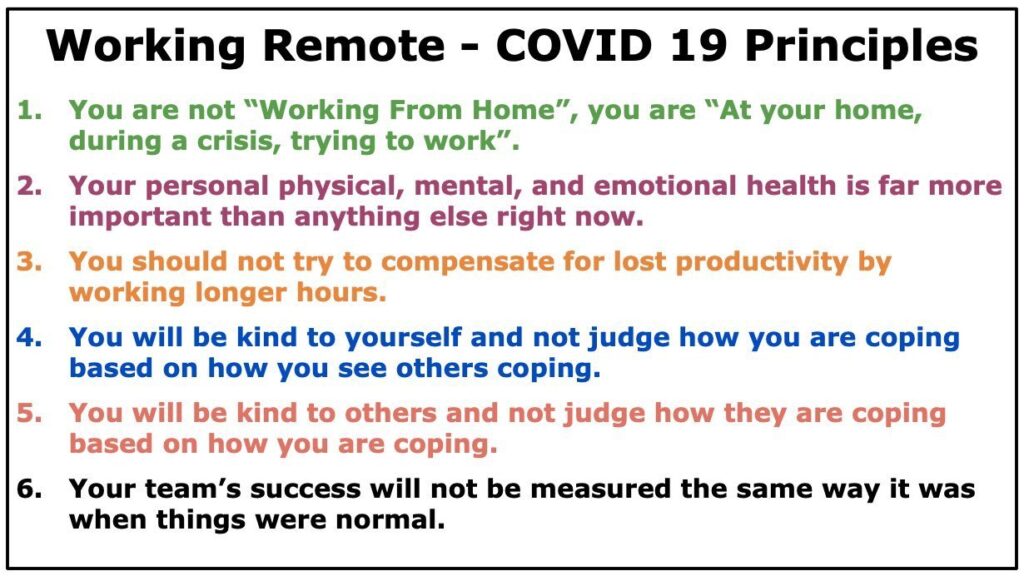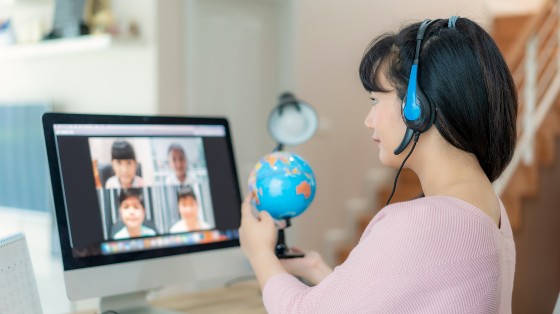Experienced EFL teacher, Coleen Monroe, has been working at a language school in Fuzhou, China since 2018. Like so many other teachers worldwide, she’s now teaching her students via distance-learning, due to the coronavirus pandemic. We asked her to share her insights on maintaining work-life balance when teaching online from home.
When you became an ESL teacher, either at home or abroad, you didn’t expect that the coronavirus pandemic would make it impossible for your classes to happen in person. But it seems that working remotely is a defining characteristic of the year 2020. If you have found yourself a sudden online English teacher, your living room may now be your classroom and your office, as well as where you do crafts, raise your kids, and watch your shows. When the fabric of work and life become so intertwined, what can you do to keep them from being completely enmeshed? Let’s look at some of the ways to maintain work-life balance when teaching online from home.
Have a dedicated workspace, if possible
This may be tough if you share space with a roommate or a family, but it can be possible to set aside space for work by changing the furniture slightly during work times or setting up a teacher’s background behind you for your online classes.
Learn ways to invest in your online teaching space.

Some people even suggest “commuting” across your apartment or house as a way to physically separate your work and personal lives. If you have a small apartment, that may not be possible, but you can still mentally switch from work to personal life by having a ritual at the start/end of the workday (i.e. make coffee in the kitchen and take it to-go for a daily walk at 5:30 p.m.).
Keep a set schedule
Set a calendar of available work times
All my friends who worked from home before the crisis say that you should make it clear to anyone who you live with that at certain times during the day you are not available, just as you would when working in an office or a school. Obviously, if you have young children this is a challenge, but in that case, setting expectations with your housemates and coworkers can be very helpful.
I saw a great calendar that was shared from one teacher to others with red and blue blocks labeled “Available” or “Unavailable, trying to feed three children lunch.” Being honest with colleagues about not being available 24/7 is important. Your humanity is more important than your productivity.
Avoid blending work and personal activities
If you are teaching on the Internet, it can be tempting to blend your web browsing with your work and make your day a never-ending stream of emails at all hours from your phone. It’s not a great idea and it will make your work quality suffer. The Internet may be on 24/7, but you don’t have to be!

Set an end-time for your workday and stick with it
Designate a time that you “go home” from your job and make it a clear boundary. If possible, keep it the same as what time you would normally be finished with work. If you have a lot of pressing emails in off-hours, set an automated response that says, “These are my working hours: M-F 9:00 – 5:00. I will respond to your email as soon as I can during those hours.”
Learn to say no
This is a key life skill and one that is often underappreciated. Your boss may tell you that you have to give up 40% of your pay overnight and want you to sign a contract amendment that’s dodgy-looking. You may have colleagues asking to you pick up some of their grading. Your school may schedule you for almost double your normal amount of classes because a colleague unexpectedly quit. You may have a parent who spams the chat group for a class, asking why the class can’t just meet for lessons anyway during the pandemic (yes, that happened to me in February).
A polite, but definitive, “no” is often a good answer to these sorts of situations. Your health and safety are the number one priority. That includes your mental health, which means that saying “no” to a massively increased schedule or unreasonable expectations for online lessons is key.
Do things that feel productive but that aren’t related to work
Find a way to keep yourself busy and engaged that isn’t in work. I find that a lot of people get bored in normal life (especially now) and simply think, “Well, if I work overtime then I won’t be bored.”
Even now, life is supposed to be about more than work. Find a book that you can read because you have the time to do so. Get involved in cooking in ways you haven’t before. Find small crafts or big ones that you can work on and feel that you are making progress each day.
For me, it’s crochet with yarn. I work on the pattern each day when I’m done with my teaching work. It has a physical and mental element, and it makes something tangible that I can see growing more complete each day. That way even if my online lessons hit the fan somehow and just aren’t working, I have something that I feel I can “show” for that day in isolation.
Ask for help and take action early on mental health
This graphic, from Twitter, speaks to what is needed while we stay home and stay distant.

A lot of people are struggling mentally now. If you find that you are having thoughts that are intruding on your daily life or making you feel miserable, you need to ask for help. For ESL/EFL teachers living in a foreign country during the crisis, the feeling of isolation and loneliness can be worse.
It’s normal to feel worried given the difficulty in the world at the moment, but if you start to feel down a lot of the time, feel physical aches and pains from stress, or experience disruptions to your ability to do basic life tasks, it’s definitely time to ask for help. Even if you don’t feel unable to do basic things, you may feel the need to talk to someone and just get an outsider perspective.
Many online resources for mental health exist:
- Bridge’s 10-hour Micro-credential course: Health, Safety, and Mental Attitudes While Teaching English Online
- 7 Cups of Tea – Online active listening chat for any issue
- Better Help – Online therapy and mental health counseling
- Jo@Samaritans.org – Email a Samaritan and receive a response, for anyone who needs to talk to someone
- Religious leaders may be available for chaplaincy over email or video chat
- Email an older friend and start a conversation
There is also a helpful, free online course in Psychological First Aid from John Hopkins University that I completed recently, and which gives a framework for responding to crises and how to care for oneself. It’s a great way to spend those hours off work that you will be very disciplined about!
At the best of times, work-life balance can be difficult to achieve. In a global crisis, it can be daunting. But the most important function of any of the strategies above is to give you the space and the strength to keep going, however long it may be. You’re going to get through this, and it’s going to be a productive time even if you aren’t in the classroom with your students at the moment. Take care!










